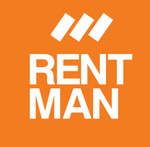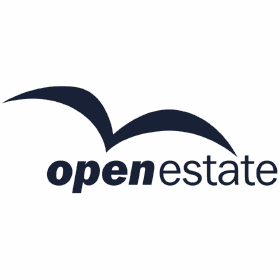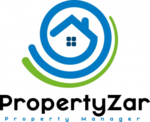Description
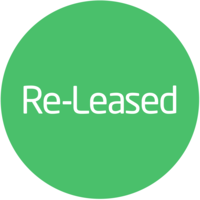
Re-Leased
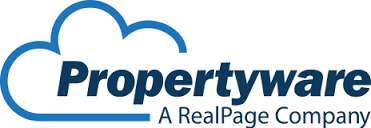
Propertyware
Comprehensive Overview: Re-Leased vs Propertyware
Re-Leased and Propertyware are property management software solutions that serve the real estate industry, each with distinct features and target markets.
Re-Leased
a) Primary Functions and Target Markets
-
Primary Functions: Re-Leased is a cloud-based commercial property management software designed to streamline the management of multiple property types. Its core functionalities include lease management, accounting, property maintenance, and reporting. Key features include automated reminders, integrated financial tools, tenant communication, and mobile accessibility, which allow for efficient property and tenant management.
-
Target Markets: Re-Leased primarily targets commercial property managers, owners, and landlords. It caters to a range of commercial properties such as retail, office, industrial, and mixed-use developments. Its focus is on simplifying complex property management tasks and enhancing operational efficiency for commercial real estate stakeholders.
b) Market Share and User Base
- Re-Leased has a strong presence in the commercial property management sector, especially in markets such as the UK, Australia, New Zealand, and increasingly in North America. While exact market share data is not typically disclosed, it is considered a competitive player in the commercial property management software space, with a growing user base as more businesses recognize the benefits of cloud-based solutions.
c) Key Differentiating Factors
-
Commercial Focus: Re-Leased is distinctly focused on the commercial real estate sector, setting it apart from competitors that might offer broader or residential-focused solutions.
-
Automation and Integration: It emphasizes automation of routine tasks and seamless integration with accounting platforms like Xero and QuickBooks, boosting operational efficiency for clients.
-
Global Reach: Re-Leased’s ability to cater to multiple geographic markets with diverse property types and local compliance requirements is a significant differentiator.
Propertyware
a) Primary Functions and Target Markets
-
Primary Functions: Propertyware is a comprehensive property management solution designed primarily for residential properties, with features that include tenant management, accounting, maintenance requests, and marketing tools. It offers functionalities like online payments, tenant screening, owner portals, and mobile app support.
-
Target Markets: The software is tailored for small to mid-sized residential property managers, especially those handling single-family, multi-family, and mixed portfolios. It caters to landlords, real estate investors, and property management companies seeking robust tools for residential property oversight.
b) Market Share and User Base
- Propertyware is a well-established player in the residential property management software sector within the United States. It enjoys substantial market penetration among residential property managers and is part of the larger RealPage ecosystem, which extends its influence and user community. Its market share is significant within its niche, benefiting from the broader capabilities and reputation of its parent company.
c) Key Differentiating Factors
-
Residential Specialty: Propertyware's focus on residential property management, particularly single-family homes, sets it apart from competitors that may split focus between commercial and residential.
-
Integration with RealPage: As part of RealPage, Propertyware users can benefit from integration opportunities with a wide array of additional services and tools offered within the RealPage ecosystem, enhancing its value proposition.
-
Comprehensive Marketing Tools: Propertyware offers strong marketing capabilities, including listing syndication and lead generation tools, which are crucial for residential property managers focused on maintaining high occupancy rates.
Comparison
-
Scope and Focus: While Re-Leased predominantly addresses the needs of commercial property management, Propertyware is tailored for residential portfolios, particularly single-family homes.
-
Market Penetration: Re-Leased is more internationally oriented, with significant presence in markets outside the US, while Propertyware has a strong foundation in the US residential market.
-
Integration and Ecosystem: Propertyware benefits from RealPage's extensive ecosystem, whereas Re-Leased focuses on efficient integration with accounting software and global reach in commercial real estate.
Both software solutions address specific needs within the property management sector, and their choice often depends on the type of real estate portfolio a client manages and the geographical market they are operating in.
Contact Info

Year founded :
2013
+64 800 004 615
Not Available
New Zealand
http://www.linkedin.com/company/re-leased

Year founded :
Not Available
Not Available
Not Available
United States
Not Available
Feature Similarity Breakdown: Re-Leased, Propertyware
Re-Leased and Propertyware are both property management software solutions designed to help property managers streamline their operations. Here's a comparison based on feature similarity and differences:
a) Core Features in Common
-
Lease Management:
- Both platforms offer tools to manage leases, including tracking lease terms, expirations, and automated reminders.
-
Tenant and Owner Portals:
- Both have tenant and owner portals that facilitate communication and provide access to essential documents and payment information.
-
Accounting Tools:
- They include comprehensive accounting features such as expense tracking, budgeting, and financial reporting.
-
Maintenance Management:
- Both platforms offer features to handle maintenance requests and work orders, allowing for efficient tracking and resolution of issues.
-
Reporting and Analytics:
- They provide reporting tools for insights into property performance, occupancy, and finances.
-
Communication Tools:
- Each platform supports communication tools for staying in touch with tenants and stakeholders.
b) User Interface Comparison
-
Re-Leased:
- The interface is known for being modern and intuitive, with a focus on ease of navigation and a clean, visually appealing design. It often emphasizes dashboards that provide quick insights into property and financial performance.
-
Propertyware:
- Propertyware's interface is functional and designed to accommodate a range of property types but may feel more traditional in layout compared to Re-Leased. It emphasizes robust functionality amidst a somewhat more pragmatic design approach.
c) Unique Features
-
Re-Leased:
- Cloud-based Focus: Re-Leased is entirely cloud-based, offering robust mobile functionality for property management on the go.
- AI-driven Insights: Features that use artificial intelligence to predict trends and suggest actions can set Re-Leased apart for users interested in data-driven decision-making.
- Commercial Property Specialization: It has strong features for managing commercial properties, which might appeal more to managers in that sector.
-
Propertyware:
- Customization and Integration: Known for its highly customizable workflows and integrations with other RealPage products, which can be appealing for larger operations needing tailored solutions.
- Built-in Marketing Tools: Offers built-in marketing capabilities that help in advertising vacancies and attracting tenants, a significant feature for residential property managers.
- Tenant Screening: Comprehensive tenant screening tools are embedded within the platform, which can be an advantage for residential property managers seeking streamlined tenant vetting.
In summary, while both platforms share several core functionalities aimed at simplifying property management, they differ in user interface design and specific features, with Re-Leased offering more modern, AI-driven insights and Propertyware providing strong customization and marketing tools. The choice between the two would depend significantly on the specific needs and operational scale of the property management business.
Features

Not Available

Not Available
Best Fit Use Cases: Re-Leased, Propertyware
Re-Leased and Propertyware are both property management software solutions, but they cater to distinct segments of the real estate industry and serve different needs based on their features and capabilities. Here's a breakdown of their best fit use cases and how they cater to different industry verticals or company sizes:
a) Re-Leased: Best Fit Use Cases
Types of Businesses or Projects:
- Commercial Property Management: Re-Leased is particularly well-suited for managing commercial properties, including office buildings, retail spaces, and industrial properties. It offers comprehensive features to handle complex lease terms, tenant communications, and financial reporting required in commercial real estate.
- Mixed-Use Developments: Companies managing a combination of commercial and residential properties benefit from Re-Leased's ability to handle diverse property types and lease agreements within a single platform.
- Property Management Firms with Global Portfolios: Re-Leased supports multiple currencies and regional compliance, making it ideal for firms managing properties across different countries.
Scenarios:
- Property managers needing a cloud-based solution that provides real-time insights and mobile access for team collaboration.
- Businesses looking for robust reporting and financial management tools to track rental income, expenses, and profitability metrics.
b) Propertyware: Preferred Option Scenarios
Types of Businesses or Projects:
- Residential Property Management: Propertyware is designed with a focus on residential property management, including single-family homes, multi-family units, and smaller residential portfolios.
- Property Managers and Landlords for Small and Mid-sized Portfolios: It's a great fit for independent landlords, smaller property management firms, or real estate investors with a concentration on residential properties.
Scenarios:
- Property managers who require features like tenant screening, lease tracking, maintenance management, and online payments primarily for residential properties.
- Companies or independent landlords seeking a user-friendly system that's easy to implement and manage with modest IT resources.
d) Differentiation by Industry Verticals or Company Sizes
Re-Leased:
- Industry Verticals: Mainly serves the commercial real estate sector but is versatile enough to support mixed-use developments. It’s adept in providing solutions for industries that involve managing complex lease agreements and tenant communications.
- Company Sizes: Targets medium to large property management firms with expansive and potentially international portfolios. Its scalable features can adapt to the needs of growing businesses handling substantial volumes of properties.
Propertyware:
- Industry Verticals: Primarily serves the residential real estate market. It's particularly advantageous for businesses focused solely on lease management and tenant services in residential settings.
- Company Sizes: Best suited for small to mid-sized property management companies and independent landlords. It’s designed to streamline operations without requiring large-scale, complex infrastructure support.
In summary, the choice between Re-Leased and Propertyware largely depends on the type of properties being managed and the scale of the company's operations. Re-Leased is optimal for commercial properties and firms with broader, more complex portfolios, while Propertyware is ideal for residential property managers and smaller firms seeking simplicity and residential-specific features.
Pricing

Pricing Not Available

Pricing Not Available
Metrics History
Metrics History
Comparing teamSize across companies
Conclusion & Final Verdict: Re-Leased vs Propertyware
Conclusion and Final Verdict for Re-Leased vs Propertyware
When deciding between Re-Leased and Propertyware, users must weigh several factors such as pricing, features, usability, scalability, and customer support. Each product caters to different segments of property management needs, and your choice will largely depend on your specific requirements and business size.
A) Best Overall Value
The best overall value between Re-Leased and Propertyware depends on your property management needs:
-
Re-Leased: Ideal for commercial property management, especially for those handling complex portfolios. Its integration with cloud technology and focus on commercial settings can provide more value for users in this niche.
-
Propertyware: Offers more for residential properties and single-family home portfolios. For residential property managers looking for robust customization and reporting capabilities, Propertyware likely presents the better value.
Ultimately, if you're focused on commercial properties, Re-Leased may present the best value; for residential management, Propertyware may be more suitable.
B) Pros and Cons
Re-Leased Pros:
- Specializes in commercial property management, making it suitable for handling large and complex portfolios.
- Strong cloud-based platform with robust reporting and forecasting capabilities.
- Multi-channel communication features help in streamlined tenant interactions.
- Regular updates and feature enhancements.
Re-Leased Cons:
- May not be ideal for those who primarily manage residential properties.
- Can be pricey for small-scale property managers due to its advanced commercial features.
Propertyware Pros:
- Geared towards residential property management, particularly single-family homes.
- High degree of customization available for reports and workflows.
- Comprehensive tenant and lease tracking.
- Scalable with multiple pricing tiers to suit different business sizes.
Propertyware Cons:
- The interface may feel outdated for some users.
- Some features might require third-party integrations, leading to additional costs.
- Customer support can be inconsistent according to some users.
C) Specific Recommendations
-
Assess Your Portfolio Type: Choose Re-Leased if your focus is on commercial properties and you need strong forecasting tools. Opt for Propertyware if you're managing residential properties, especially single-family homes.
-
Evaluate Your Budget: Consider the cost relative to the size and needs of your portfolio. Re-Leased might offer advanced features for commercial properties but can be costlier, whereas Propertyware offers scalability with various pricing options.
-
Functional Needs: If robust customization and reporting are your main priorities, Propertyware offers more flexibility with its workflows and reports. However, if you need advanced financial tracking and commercial lease management, Re-Leased excels in these areas.
Overall, thorough evaluation of your specific needs and priorities in property management will guide you to the software that provides the best value for your business.
Add to compare
Add similar companies
